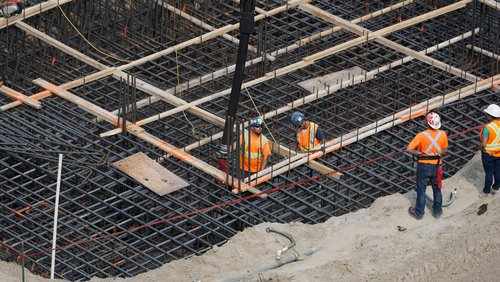Date: |
26 Feb 2026, 8.30AM – 12.30PM |
duration: |
4 hrs |
Location: |
Online |
CPD hours: |
4 hrs |
Cost: |
|
When an engineer issues a statement of professional opinion declaring compliance with some legislation/regulation, various parties will want to rely on it. This results in potential liabilities, both professionally and commercially, for authors and for those who accept them, and their employers.
This half-day workshop will consider good and equitable practice in compliance verification with emphasis on the use of producer statements, both the standard form and the ‘A-Series’ - for work that does not require a Building Consent. The use of ‘letters-in-lieu’ instead of producer statements, when verification pathways are not well defined, is also covered.
Application relating to design, design review and construction review will be covered.
Potential liability arising from the use of compliance verification documentation for all parties, and how to reasonably manage it, will also be covered
Intended audience
- Those who author and/or accept producer statements (or equivalent compliance verification documentation) or who anticipate moving into such a role.
- Principal or design-lead in a design office.
- Senior building officers in a BCA.
- Proprietary engineers/designers who work for manufacturers of materials, plant, and equipment that is subject to regulatory compliance requirements.
Learning outcomes
Participants will be able to:
- Outline and explain good practice relating to compliance verification documentation.
- Have a good understanding of potential liabilities and how to manage them.
- Develop a working knowledge of relevant Engineering New Zealand resources available to assist their work.
- Explain to staff, clients and other parties, relevant roles, responsibilities and liabilities.
Course format
Informal half-day presentation and workshop tailored to the experience and roles of the course participants.
Presenter Information
Adam Thornton has had over 40 years’ experience leading structural engineering design teams on a wide range of commercial, residential and institutional projects. In recent years he has also had significant experience providing ‘expert opinion’ when engineers’ work has fallen short of expectations.
This workshop will review good practice and liability issues for both authors and reviewers/receivers of producer statements and other verification documentation. Establishing compliance with the Building Act and with other regulatory frameworks is covered.
When an engineer issues a statement of professional opinion declaring compliance with some legislation/regulation, various parties will want to rely on it. This results in potential liabilities, both professionally and commercially, for authors and for those who accept them, and their employers.
This half-day workshop will consider good and equitable practice in compliance verification with emphasis on the use of producer statements, both the standard form and the ‘A-Series’ - for work that does not require a Building Consent. The use of ‘letters-in-lieu’ instead of producer statements, when verification pathways are not well defined, is also covered.
Application relating to design, design review and construction review will be covered.
Potential liability arising from the use of compliance verification documentation for all parties, and how to reasonably manage it, will also be covered
Intended audience
- Those who author and/or accept producer statements (or equivalent compliance verification documentation) or who anticipate moving into such a role.
- Principal or design-lead in a design office.
- Senior building officers in a BCA.
- Proprietary engineers/designers who work for manufacturers of materials, plant, and equipment that is subject to regulatory compliance requirements.
Learning outcomes
Participants will be able to:
- Outline and explain good practice relating to compliance verification documentation.
- Have a good understanding of potential liabilities and how to manage them.
- Develop a working knowledge of relevant Engineering New Zealand resources available to assist their work.
- Explain to staff, clients and other parties, relevant roles, responsibilities and liabilities.
Course format
Informal half-day presentation and workshop tailored to the experience and roles of the course participants.
Presenter Information
Adam Thornton has had over 40 years’ experience leading structural engineering design teams on a wide range of commercial, residential and institutional projects. In recent years he has also had significant experience providing ‘expert opinion’ when engineers’ work has fallen short of expectations.
Presenters

Adam Thornton
Adam Thornton has more than 30 years of structural engineering experience on a broad range of commercial, institutional, high-rise and retail projects. Adam is widely respected in the construction industry for his innovative in-depth construction knowledge and his leadership.
Adam has extensive knowledge of the Building Act, building codes and Building Consent Authority processes. He is the author of the practice note on producer statements.







